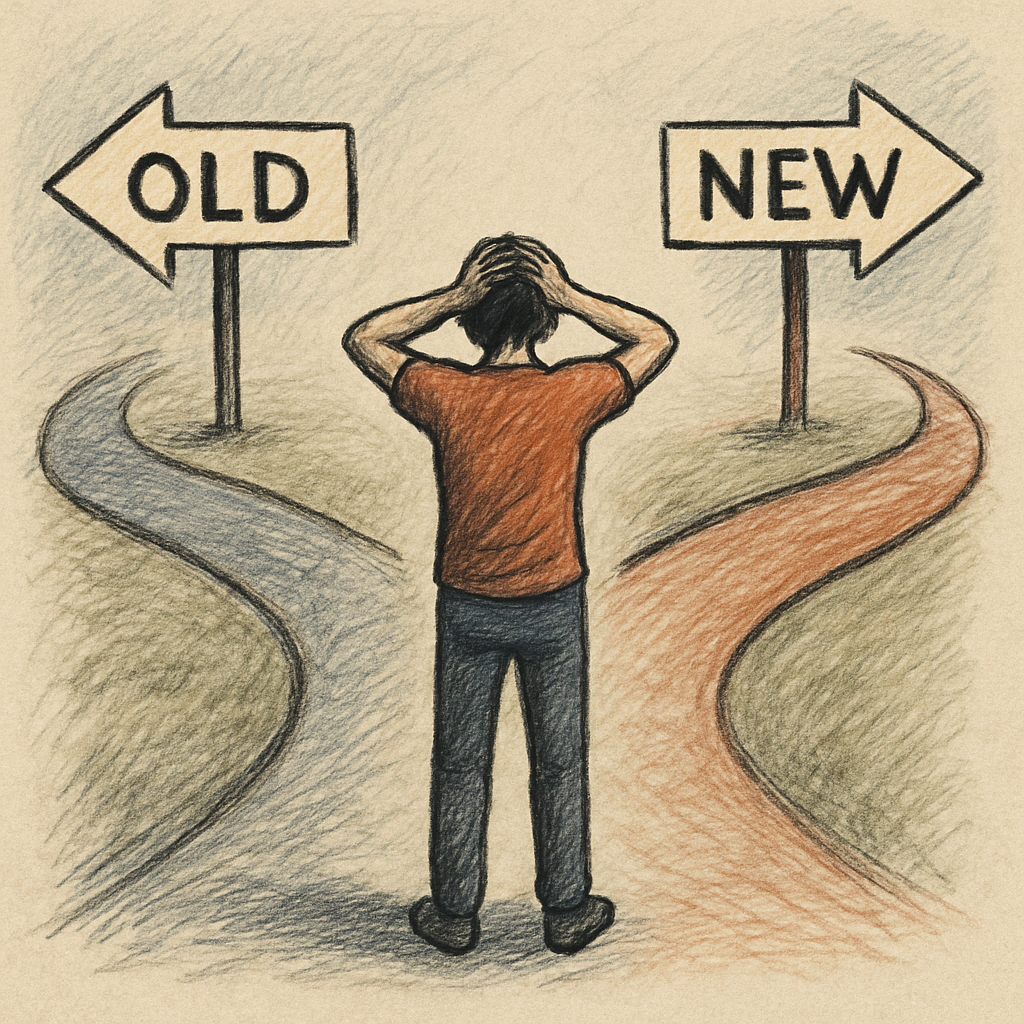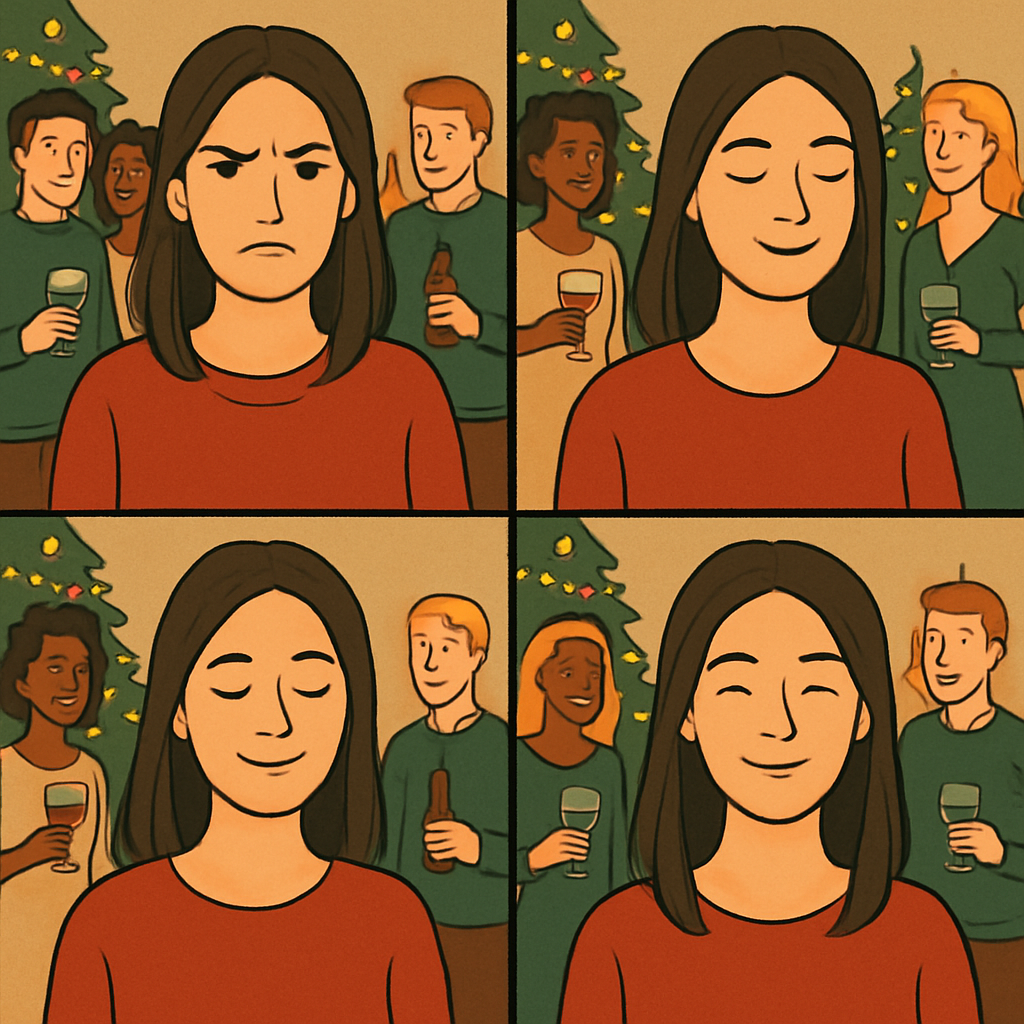[Guest blog by Rick Kuplinski, Facilitator, SMART Recovery Henderson]
There are approximately 45 days from Thanksgiving through the Martin Luther King, Jr. Holiday, and each of them consist of 24 hours, just like the other 320 days. Still, these 45 days are filled with potential challenges for people in recovery from addictive behaviors.
So, what is it about the holiday season that makes it so fraught with triggers, urges, FOMOs, boundary violations, and generally the temptation to take a break from our change plans? One can blame the sight of the colorful decorations, the sound of familiar carols, the smell of roasted turkey. But no, my SMART Recovery friends. Remember that we are not so much affected by the things around us than we are the beliefs we form about these things. And when it comes to this time of year, we can easily fall into the unhelpful thinking habits we’ve been learning to recognize and overcome before the first mall Santa appeared. We do this by challenging the “rationality” of our thinking and substituting more effective new beliefs for those that have not served us well in the past. See if you recognize or have experienced some versions of these yourself:
Downing Beliefs: “Thanksgiving? What have I got to be thankful for? I am such a loser, and I’ve ruined everything.”
Demand Thinking: “Everything must be perfect for the holidays. People need to get along. They must have a good time. And they must love their presents.”
Jumping to Conclusions/Awfulizing: “Christmas day with family is going to be terrible. Those people always go out their way to push my buttons.”
Low Frustration Tolerance: “I wasn’t going to get high at the party. But what the hell? I hung in there for half of it anyway.”
Rating and Comparing: “I want my holidays to be like those movies on the Hallmark Channel. What is wrong with this family? What is wrong with me?”
Overgeneralization: “C’mon. It’s New Year’s Eve. Everybody gets messed up.”
It is natural to have these thoughts. They don’t make us weird. And they don’t define us. What matters is that we don’t let unhelpful thinking drag us down in such a way that they disrupt our enjoyment of the season or, worse, lead us to making unhelpful (even destructive?) choices that challenge the progress we’ve made all year.
It’s a good time of year to take Dispute Unhelpful Beliefs out of the SMART Recovery toolkit and hang it up like mistletoe to remind us that “beliefs can be questioned, explored, and changed. You don’t have to believe [or act upon] everything you think.” Key to using the tool is understanding that helpful beliefs are true, make sense, or are helpful. Unhelpful beliefs, on the other hand:
- Aren’t necessarily true, and we ignore or dismiss contrary information.
- Are not quite logical; they don’t pass “the smell test.”
- And/or . . . when acted upon often lead to more harmful consequences than helpful ones.
Here’s a summary of how to dispute unhelpful beliefs as explained in the SMART Recovery Handbook and on www.smartrecovery.org:
- Write down the unhelpful belief -- What’s the thought that’s getting in your way?
- Ask a question to challenge it -- Use questions like: Is this always true? Would I say this to a friend? What’s another way of looking at this?
- Formulate a more helpful belief -- Replace the original thought with something more balanced and useful. It should be honest, not overly positive, and supportive of your long-term goals.
If you’ve never used this tool, or haven’t used it in a while, this is a good time of year to unwrap it like a gift and try it on. See if you can use the formula to challenge any thoughts you suspect may be unhelpful thinking for the holidays. If you’re having a hard time getting started, try taking one of those described above and pretend you are talking with a friend to work them through the tool. Sometimes it’s easier this way because you might find yourself coming from a place of empathy and compassion that you initially have difficulty showing yourself. Need more help? Take it to a SMART Recovery meeting. If you aren’t already attending one, then the Meeting Finder feature of the SMART Recovery website will help you find options that work for you, either in person where you live or online.
And as long as we are gathered here around the Yule log, let’s remember in this season of giving to give to ourselves as well by practicing some ideas for self-care. Let’s ask ourselves:
- Are you setting appropriate boundaries with family members, friends, and co-workers, as well as limits on yourself for things you will or will not do during the holidays?
- Are you setting realistic expectations for yourself and remaining flexible in the event things don’t go the way you planned?
- Do you know your holiday “danger zones” and how to navigate them?
- Do you have a support system to lean on?
- What are you planning on doing constructively with any extra “down time” you may have during the holiday season?
- What aspects of your self-care will you be paying extra special attention to so that these do not get neglected or fall by the wayside in all the hustle and bustle?
However you celebrate the season (or choose not to) my wish for you is to experience the joys of building your life beyond addiction well into the coming new year and beyond.
To find and in-person or online meeting go to the “Meetings” tab at www.smartrecovery.org




